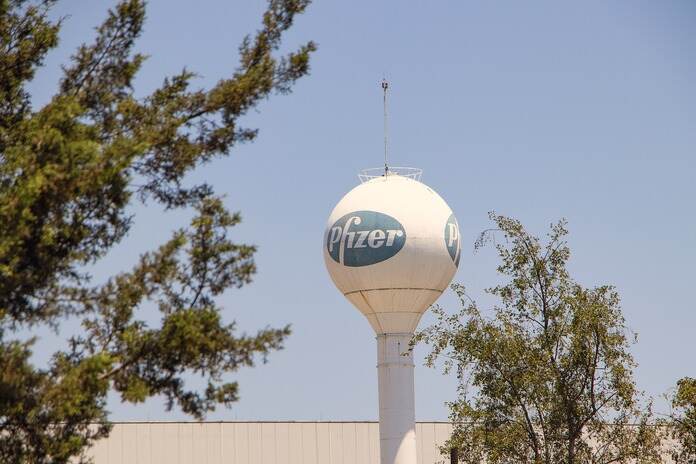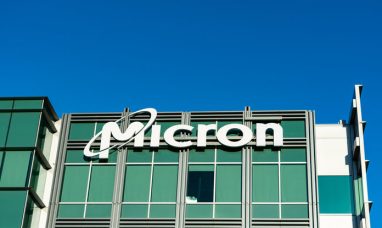Pharmaceutical giant, Pfizer (NYSE:PFE) has announced the receipt of accelerated endorsement from the FDA for elranatamab, a groundbreaking BCMA-CD3-targeted bispecific antibody named Elrexfio, designed to address relapsed/refractory multiple myeloma (RRMM). The drug is specifically tailored for patients who have undergone extensive prior treatment, having received at least four lines of therapy that encompassed a proteasome inhibitor, an immunomodulatory agent, and an anti-CD38 monoclonal antibody. The continued sanction for the medication will be contingent upon the validation of its clinical advantages through a confirmatory study.
This milestone marks a significant advancement in treatment options, as Elrexfio becomes the inaugural off-the-shelf fixed-dose subcutaneous BCMA-CD3 targeted solution to attain approval in the United States. Following 24 weeks of weekly treatment, patients will have the option of transitioning to a dosing regimen every other week for the long term.
Pfizer’s stock performance has encountered a 31% decline in the current year, in contrast to the industry’s 7.8% upturn.
The FDA’s endorsement of Elrexfio derives from data acquired during the pivotal phase II MagnetisMM-3 study. This study evaluated elranatamab in heavily treated RRMM patients, with Elrexfio serving as their primary BCMA-directed therapy. Notably, the data demonstrated swift and profound responses, coupled with a manageable safety profile for elranatamab. Among patients who had undergone four or more lines of therapy, the overall response rate stood at 58%. Impressively, 82% of these patients sustained their response for a minimum of nine months, with a median time to initial response recorded at 1.2 months. The FDA’s approval also takes into account outcomes from a subset of the MagnetisMM-3 study, where a 33% overall response rate was observed among 63 patients who had received four or more lines of therapy.
However, the approval of Elrexfio carries a boxed warning relating to cytokine release syndrome and neurologic toxicity.
The ongoing MagnetisMM program is dedicated to exploring Elrexfio’s potential for broader application across earlier stages of treatment, both as a standalone agent and in combination therapies spanning the full spectrum of myeloma progression – from newly diagnosed multiple myeloma to RRMM. Additionally, the marketing authorization application for elranatamab is currently undergoing assessment within the EU.
Pfizer’s dynamic strategy for 2023 encompasses an array of new product and indication launches, with the majority scheduled for the latter half of the year. The company is well on its way to achieving its goal of introducing 19 new products or indications within an 18-month timeframe (all unrelated to COVID), a portfolio projected to yield approximately $20 billion in sales by 2030. Significantly, two-thirds of these products exhibit blockbuster potential, according to Pfizer’s estimates.
In recent months, Pfizer has secured FDA approval for various notable treatments. These include the RSV vaccine Abrysvo for older adults in May, the CGRP receptor antagonist Zavzpret (zavegepant nasal spray) for acute migraine treatment in March, and the JAK3 inhibitor Litfulo (ritlecitinib) for severe alopecia areata in adults and adolescents. In a pivotal move, the FDA also greenlit Ngenla, an extended-release weekly treatment for pediatric growth hormone deficiency, all in June.
Pfizer is optimistic about the prospects of its new product launches, such as the Abrysvo RSV vaccine, etrasimod for ulcerative colitis (currently under US and EU review), and its pentavalent meningococcal vaccine (pending approval in Europe and the US). These launches, combined with strategic business development, including the proposed acquisition of Seagen (SGEN), position Pfizer strongly for sustained growth in 2025 and beyond.
Earlier this year, Pfizer announced its intention to acquire Seagen, a company specializing in cancer therapeutics, for $229 per share in cash, equating to an approximate enterprise value of $43 billion. The acquisition is projected to enrich Pfizer’s cancer drug portfolio through the incorporation of antibody-drug conjugates. Seagen currently markets four cancer drugs, namely Adcetris, Padcev, Tukysa, and Tivdak. The transaction between Pfizer and Seagen is slated for completion either in late 2023 or early 2024, with Seagen’s shareholders having already given their approval.
Featured Image: Pixabay















